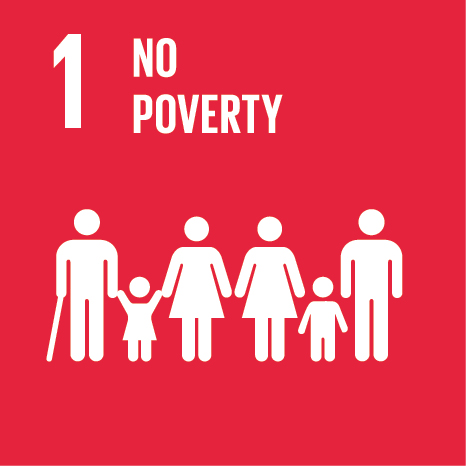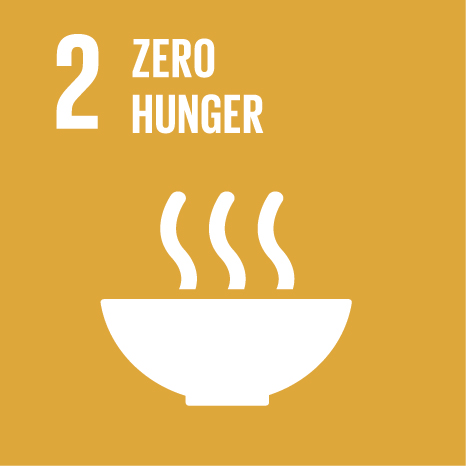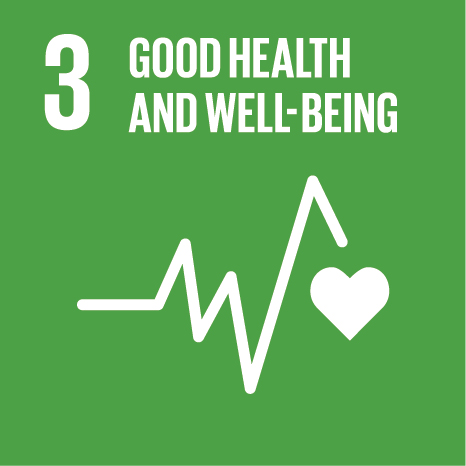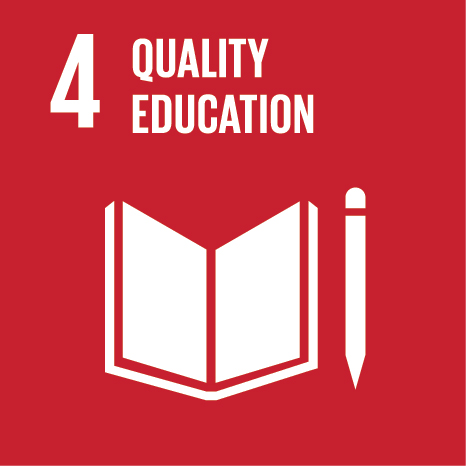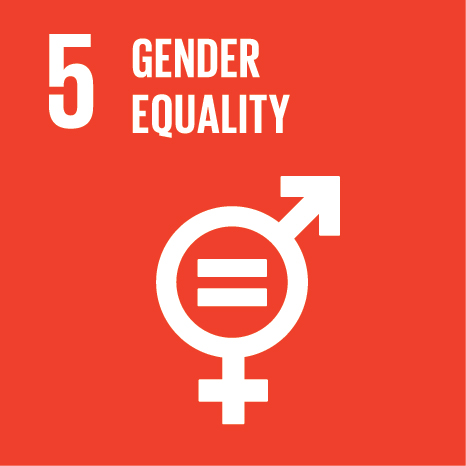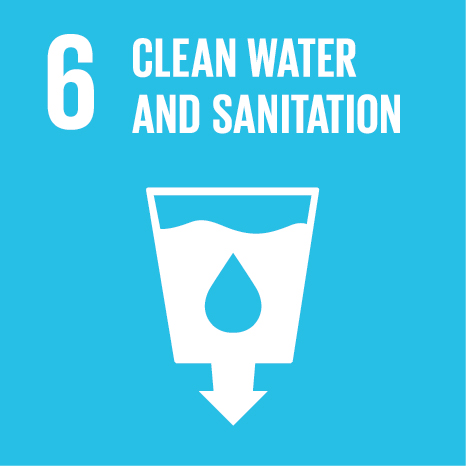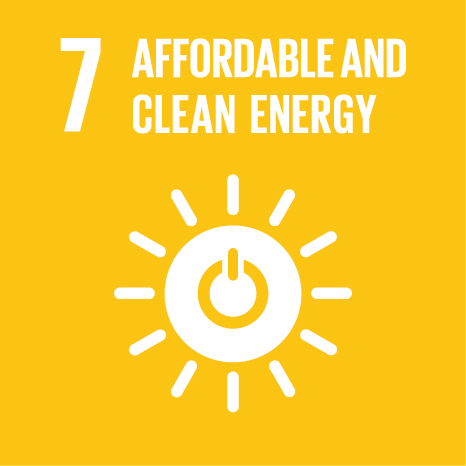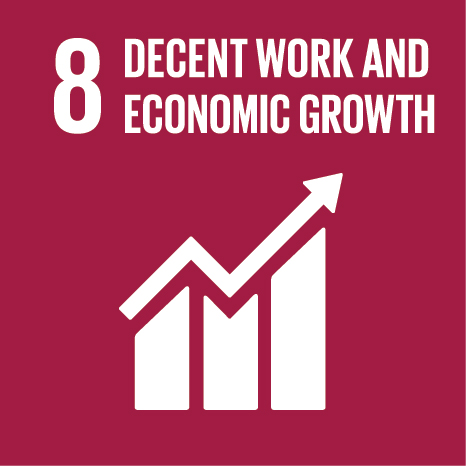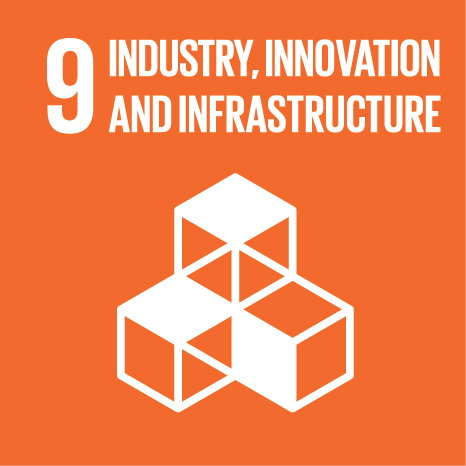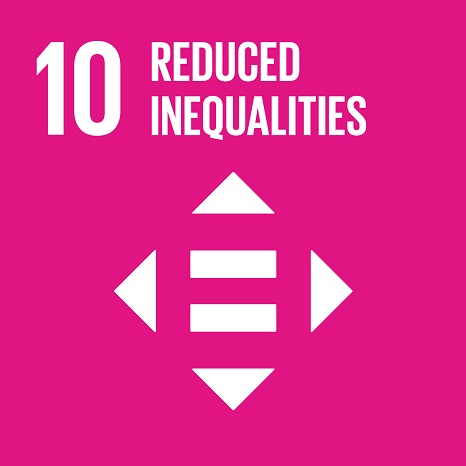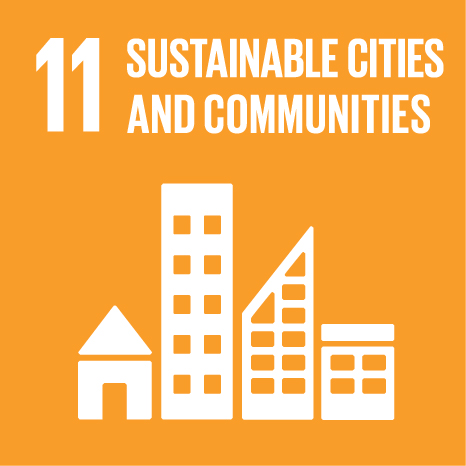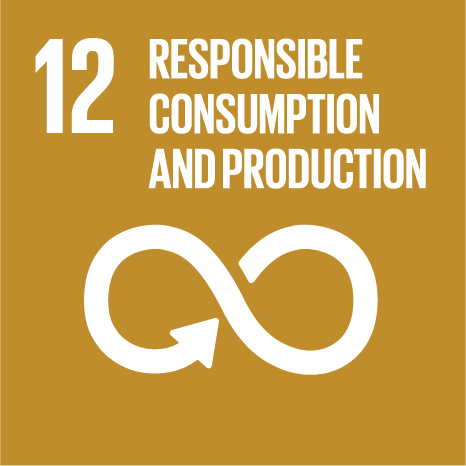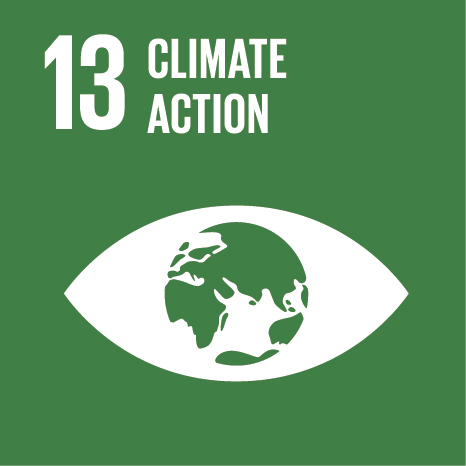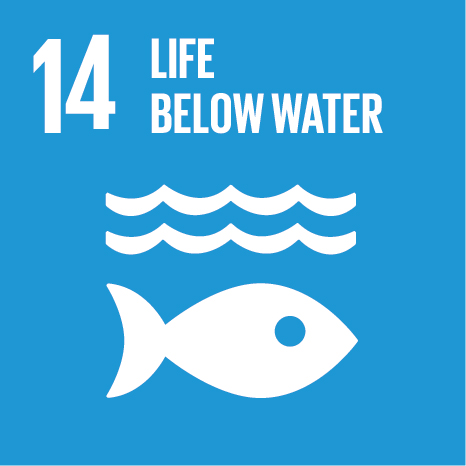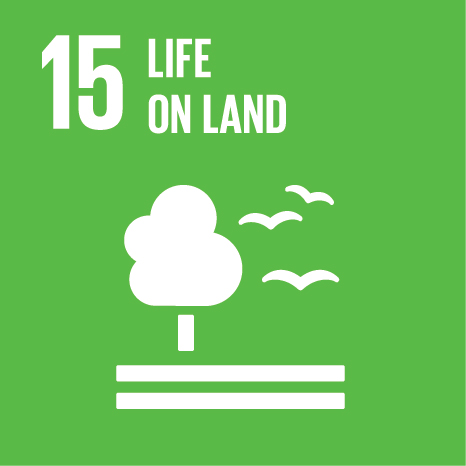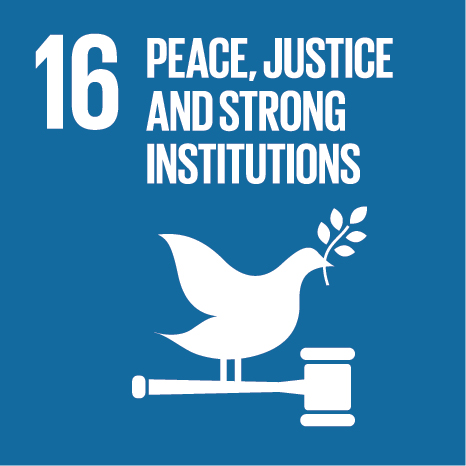SDG 1: No Poverty
Our Goals in Action
University anti-poverty programmes
The *University Anti-Poverty Program* is an initiative designed to address poverty through education, research, and community engagement. It focuses on empowering low-income communities by providing skill development training, scholarships for underprivileged students, and partnerships with government and private sectors to create sustainable employment opportunities. The university also serves as a hub for social innovation, developing research and appropriate technologies that enhance community economic independence. This effort aligns with Sustainable Development Goal (SDG) 1: *No Poverty*, aiming to build a more equitable, inclusive, and prosperous society.
1.3.1 Does your university as a body have targets to admit students who fall into the bottom 20% of household income group (or a more tightly defined target) in the country?
UNJ has transformed into a State University with Legal Entity status (PTNBH), granting it autonomy in academic and financial management, alongside a social responsibility to the community. A key manifestation of this is the admission of a minimum of 20% of students from underprivileged families and the 3T regions (frontier, outermost, and least developed). This policy aims to promote equitable access to education and drive economic growth across all societal layers. Mandated by Government Regulation No. 31 of 2024, this commitment ensures UNJ recruits high-potential students from disadvantaged economic and geographical backgrounds. Their funding will be further regulated by a Rector's Decree. This policy solidifies UNJ's role as a PTNBH that is not only academically excellent but also actively fosters social justice and inclusive education.
SK PTNBH UNJ
https://ditisip.unj.ac.id/documents/preview/7
Penmaba UNJ
https://penmaba.unj.ac.id/
News
https://fis.unj.ac.id/merajut-mimpi-bersama-beasiswa-sejarah/"
SK PTNBH UNJ
https://ditisip.unj.ac.id/documents/preview/7
Penmaba UNJ
https://penmaba.unj.ac.id/
News
https://fis.unj.ac.id/merajut-mimpi-bersama-beasiswa-sejarah/"
1.3.3 Does your university as a body provide support (e.g. food, housing, transportation, legal services) for students from low income families to enable them to complete university?
As a State University with Legal Entity status (PTNBH), UNJ promotes holistic student development that extends beyond academics. This commitment is reflected in UNJ’s policy to allocate at least 20% of new student admissions to high-achieving students from underprivileged families and remote (3T) regions, as mandated by national law. To comprehensively empower this diverse student body, UNJ provides extensive support, including affordable housing, meals, and campus transportation to help reduce living expenses and foster a focused academic life. Furthermore, UNJ offers accessible legal aid services and life insurance coverage to ensure students’ rights and well-being are protected. The university also provides a wide range of educational support facilities, such as libraries, a sports stadium, a health clinic, counseling services, and English proficiency testing, to enhance students’ academic and personal growth.
Link Evidences
https://ditisip.unj.ac.id/documents/preview/8
https://ditisip.unj.ac.id/sdg/16/berita/pusat-studi-hukum-gelar-penyuluhan-hukum-gratis?utm_
https://www.quipper.com/id/blog/quipper-campus/campus-life/akomodasi-dan-asrama-yang-tersedia-di-universitas-negeri-jakarta/?utm_source=chatgpt.com
https://www.youtube.com/watch?v=2w_ZrStgnec
Link Evidences
https://ditisip.unj.ac.id/documents/preview/8
https://ditisip.unj.ac.id/sdg/16/berita/pusat-studi-hukum-gelar-penyuluhan-hukum-gratis?utm_
https://www.quipper.com/id/blog/quipper-campus/campus-life/akomodasi-dan-asrama-yang-tersedia-di-universitas-negeri-jakarta/?utm_source=chatgpt.com
https://www.youtube.com/watch?v=2w_ZrStgnec
1.3.4 Does your university as a body have programmes or initiatives to assist students who fall into the bottom 20% of household income group (or a more tightly defined target) in the country to successfully complete their studies?
UNJ implements targeted programs to ensure students from the bottom 20% of household income succeed in their studies. These include specialized initiatives like the Mappi Papua student program and fast-track schemes, alongside comprehensive scholarships such as KJMU and KIP-K for low-income students. Furthermore, the university has a flexible single tuition fee (UKT) policy, allowing for payment deferrals, reductions, or temporary exemptions in accordance with applicable regulations. This multi-faceted support system—combining financial aid, academic acceleration, and personalized assistance—demonstrates UNJ's profound commitment to educational equity. It ensures that economic circumstances are not a barrier to academic achievement, empowering every talented student to thrive and graduate.
Schoolarship and Fact Track Program
https://ditisip.unj.ac.id/documents/preview/9
Schoolarship in UNJ
1. KIP : https://kip-kuliah.kemdiktisaintek.go.id/
2. https://unjkita.com/beasiswa-kuliah-unj/
3. https://sps.unj.ac.id/kemahasiswaan/beasiswa/
4. https://penmaba.unj.ac.id/program-beasiswa-twh/
5. https://fip.unj.ac.id/plb/informasi-beasiswa/
6. https://ft.unj.ac.id/en/beasiswa-2/
UKT UNJ Policy
https://fe.unj.ac.id/wp-content/uploads/2020/08/SK-Juknis-Pengajuan-Permohonan-Perubahan-UKT-di-UNJ-stmpl.pdf "
Schoolarship and Fact Track Program
https://ditisip.unj.ac.id/documents/preview/9
Schoolarship in UNJ
1. KIP : https://kip-kuliah.kemdiktisaintek.go.id/
2. https://unjkita.com/beasiswa-kuliah-unj/
3. https://sps.unj.ac.id/kemahasiswaan/beasiswa/
4. https://penmaba.unj.ac.id/program-beasiswa-twh/
5. https://fip.unj.ac.id/plb/informasi-beasiswa/
6. https://ft.unj.ac.id/en/beasiswa-2/
UKT UNJ Policy
https://fe.unj.ac.id/wp-content/uploads/2020/08/SK-Juknis-Pengajuan-Permohonan-Perubahan-UKT-di-UNJ-stmpl.pdf "
Community anti-poverty programmes
The Community Anti-Poverty Program at Universitas Negeri Jakarta (UNJ) is a strategic initiative aimed at reducing poverty through education, empowerment, and innovation. UNJ collaborates with local communities to provide entrepreneurship training, digital literacy, and sustainable livelihood programs that enhance economic independence. Through community service, research, and student involvement, UNJ helps improve access to education and employment for underprivileged groups. This program reflects UNJ’s social responsibility and commitment to achieving Sustainable Development Goal 1: No Poverty, by fostering inclusive growth and strengthening community resilience.
1.4.2 Does your university as a body provide financial assistance to the local community assisting the start-up of financially and socially sustainable businesses?
UNJ provides significant assistance to the local community by fostering financially and socially sustainable businesses, primarily through its community empowerment programs. The university has designated "assisted areas" (fostered villages and sub-districts) across regions including DKI Jakarta, Bekasi, Bogor, Depok, Banten, Subang, Indramayu, and Karawang. These regions are the focus of our community service and "Merdeka Belajar - Kampus Merdeka" (MBKM) initiatives. A key example is the village of Indramayu, where the practical application of faculty research is directly transferred to the community. This knowledge transfer equips local residents with innovative solutions and sustainable business models, empowering them to build enterprises that are both economically viable and socially beneficial, thereby driving regional development.
https://timesindonesia.co.id/indonesia-positif/506347/-warek-iv-bidang-perencanaan-dan-kerja-sama-unj-adakan-pengabdian-masyarakat-di-kabupaten-indramayu
https://timesindonesia.co.id/indonesia-positif/506347/-warek-iv-bidang-perencanaan-dan-kerja-sama-unj-adakan-pengabdian-masyarakat-di-kabupaten-indramayu
1.4.3 Does your university as a body organise training or programmes to improve access to basic services for all?
UNJ organizes training or programs to increase access to basic services, especially in the fields of health and sanitation, through education, campaigns, examinations, community service, and empowerment programs.
https://journal.unj.ac.id/unj/index.php/snppm/article/view/50229?utm
https://journal.unj.ac.id/unj/index.php/snppm/article/view/50022?utm
https://www.suarakarya.id/nasional/26013348408/fakultas-teknik-unj-implementasikan-pengolahan-air-laut-menjadi-air-bersih-untuk-warga-desa-pantai-sederhana
https://journal.unj.ac.id/unj/index.php/snppm/article/view/50229?utm
https://journal.unj.ac.id/unj/index.php/snppm/article/view/50022?utm
https://www.suarakarya.id/nasional/26013348408/fakultas-teknik-unj-implementasikan-pengolahan-air-laut-menjadi-air-bersih-untuk-warga-desa-pantai-sederhana
1.4.4 Does your university as a body participate in policy making at local, regional, national and/or global level to implement programmes and policies to end poverty in all its dimensions?
As an educational institution, UNJ actively participates in policy-making processes at local, regional, and national levels to support programs aimed at ending poverty in all its dimensions. Our contribution is channeled through evidence-based policy research conducted by our academics, which provides critical insights for government bodies. Furthermore, we directly implement community empowerment programs (pengabdian masyarakat) that serve as practical models for poverty alleviation, focusing on education, economic resilience, and social welfare. Through strategic collaborations with government agencies, NGOs, and international partners, and by providing expansive scholarship access for underprivileged students, UNJ ensures that its initiatives translate into tangible policies and actions that address the multifaceted nature of poverty
Link Evidences
Policy for SDGs -1
https://ppid.unj.ac.id/rencana-strategis/
https://lppm.unj.ac.id/download/panduan-penelitian-dan-pengabdian-kepada-masyarakat-unj-2024/
Participation UNJ for No Poverty
https://ditisip.unj.ac.id/sdg/1?utm
https://www.jawapos.com/pendidikan/01294807/ikut-tanggulangi-kemiskinan-unj-terima-penghargaan-dari-pemprov-dki
Schoolarship in UNJ
1. KIP : https://kip-kuliah.kemdiktisaintek.go.id/
2. https://unjkita.com/beasiswa-kuliah-unj/
3. https://sps.unj.ac.id/kemahasiswaan/beasiswa/
4. https://penmaba.unj.ac.id/program-beasiswa-twh/
5. https://fip.unj.ac.id/plb/informasi-beasiswa/
6. https://ft.unj.ac.id/en/beasiswa-2/
UKT UNJ Policy
https://fe.unj.ac.id/wp-content/uploads/2020/08/SK-Juknis-Pengajuan-Permohonan-Perubahan-UKT-di-UNJ-stmpl.pdf "
Link Evidences
Policy for SDGs -1
https://ppid.unj.ac.id/rencana-strategis/
https://lppm.unj.ac.id/download/panduan-penelitian-dan-pengabdian-kepada-masyarakat-unj-2024/
Participation UNJ for No Poverty
https://ditisip.unj.ac.id/sdg/1?utm
https://www.jawapos.com/pendidikan/01294807/ikut-tanggulangi-kemiskinan-unj-terima-penghargaan-dari-pemprov-dki
Schoolarship in UNJ
1. KIP : https://kip-kuliah.kemdiktisaintek.go.id/
2. https://unjkita.com/beasiswa-kuliah-unj/
3. https://sps.unj.ac.id/kemahasiswaan/beasiswa/
4. https://penmaba.unj.ac.id/program-beasiswa-twh/
5. https://fip.unj.ac.id/plb/informasi-beasiswa/
6. https://ft.unj.ac.id/en/beasiswa-2/
UKT UNJ Policy
https://fe.unj.ac.id/wp-content/uploads/2020/08/SK-Juknis-Pengajuan-Permohonan-Perubahan-UKT-di-UNJ-stmpl.pdf "

 SIGN IN WITH GOOGLE
SIGN IN WITH GOOGLE
